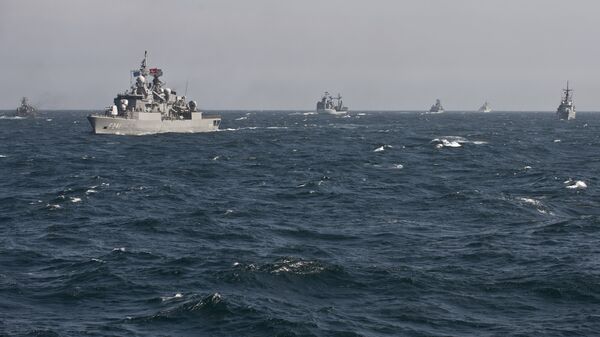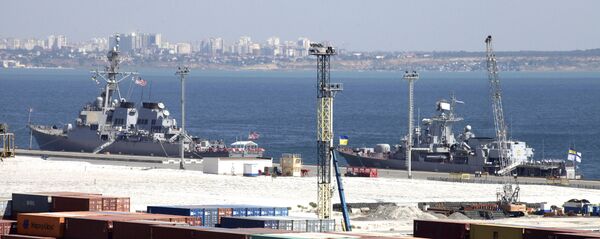"I would not expect us to go in there [Sea of Azov]," Admiral James Foggo said at the Atlantic Council on Friday. "I would expect us to continue to operate in the Black Sea. We do that about 125 days [a year] for NATO and about 125 days for US warships, so we’ve got 250 days covered throughout the year and will continue to that."
READ MORE: Russian Embassy in US Slams State Dept for Shielding Kiev's Actions in Azov Sea
Foggo noted that US naval forces are considering a "porcupine" defense in an area of the Black Sea to counter Russia’s buildup in the Sea of Azov.
According to the US Naval Institute, a porcupine defense is a type of blockade designed to deny enemy warships access to a defined area.
On Seeking Dialogue With Russia
The admiral of US naval forces also revealed that NATO's Trident Juncture 2018 naval exercise off the coast of Norway slated to begin later this month, sought to deter and defend from a potential Russian aggression, but the alliance also wanted dialogue with Moscow.
"We deter and we defend, at the same time we dialogue with the Russians," Foggo told guests at the Atlantic Council.
The admiral noted that Russian observers have been invited to monitor the naval exercise "openly and freely."
Foggo explained that all 29 members of NATO, plus Finland and Norway, will participate in Trident Juncture 2018 from October 24 to November 7,
The drill will involve 45,000 personnel, 70 ships and 120 aircraft, making it the largest NATO exercise since 2002, according to the alliance.
Foggo emphasized the transparency of the upcoming exercise, which he described as practice for an "Article 5 defense of a great NATO ally, Norway."
Article 5 of the NATO Charter enshrines the principle of collective defense by designating an attack on an individual member of the alliance as an attack on all members.



